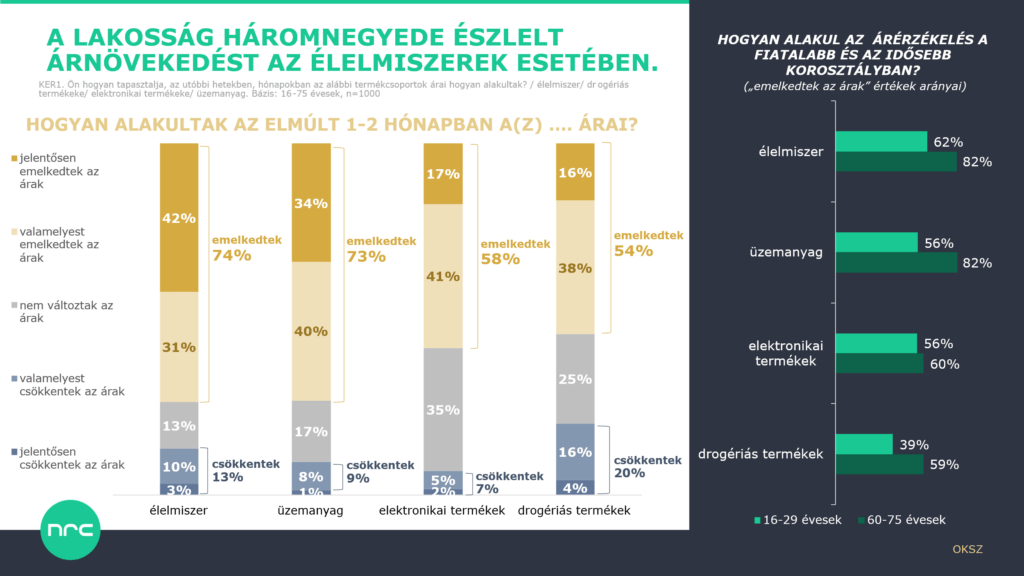OKSZ: Margin stop sweeps inflation under the transparent carpet
According to three-quarters of the population, food prices are rising in Hungary, and economic policy plays a decisive role in this, meaning that the margin freeze does not achieve the desired effect, and in fact, half of the population feels that central intervention in prices makes the economic environment more unpredictable. This is revealed in the representative online survey by NRC NetPanel.

Despite the margin freeze regulation, the vast majority of consumers perceive price increases and link this to the economic situation and the performance of the government. This is revealed in the online survey by NRC NetPanel conducted on behalf of the National Trade Association. (The survey was conducted among 1,000 people aged 16-75.)
According to the survey, three-quarters of the population have perceived a smaller or larger increase in food prices in recent months (42 percent of them complained about a particularly strong price increase) and about the same proportion of those who believe that economic policy makers have a decisive or large role in this. According to the survey, the price increase was felt even more by the older age group. Almost everyone had heard of the margin cap, and the majority (significantly more among the oldest age group) were able to form an opinion on the matter, but the results are divisive. Among those who felt that their expenses had increased as a result of this, the older generation was strongly overrepresented, while among those who felt that prices had decreased, the proportion of those with lower education was higher than the national average.
“The margin freeze is intended to ensure that those with the lowest incomes have access to basic food at a favorable price. However, the measure clearly does not achieve this goal: low-income earners and pensioners are more likely to perceive price increases, while higher-income earners are more likely to notice price decreases, which suggests that they are more likely to benefit from it,” points out Tamás Kozák, Secretary General of the National Trade Association (OKSZ), which commissioned the survey.
Half of the population agrees that central intervention in prices makes the economic environment more unpredictable. For the vast majority, government communication does not play a role in which store they choose, with prices and promotions being the most important considerations, followed by location, and only very lagging behind are other considerations, including unfortunately quality.
Related news
OKSZ on the extension of the margin stop decree
🎧 Hallgasd a cikket: Lejátszás Szünet Folytatás Leállítás Nyelv: Auto…
Read more >Trade union: the elimination of the margin cap could lead to another price explosion for basic foodstuffs
🎧 Hallgasd a cikket: Lejátszás Szünet Folytatás Leállítás Nyelv: Auto…
Read more >OKSZ: Retail margin cap has lost its purpose – government decision due in February
🎧 Hallgasd a cikket: Lejátszás Szünet Folytatás Leállítás Nyelv: Auto…
Read more >Related news
Festival buzz at the 60th anniversary EuroShop trade fair
🎧 Hallgasd a cikket: Lejátszás Szünet Folytatás Leállítás Nyelv: Auto…
Read more >







